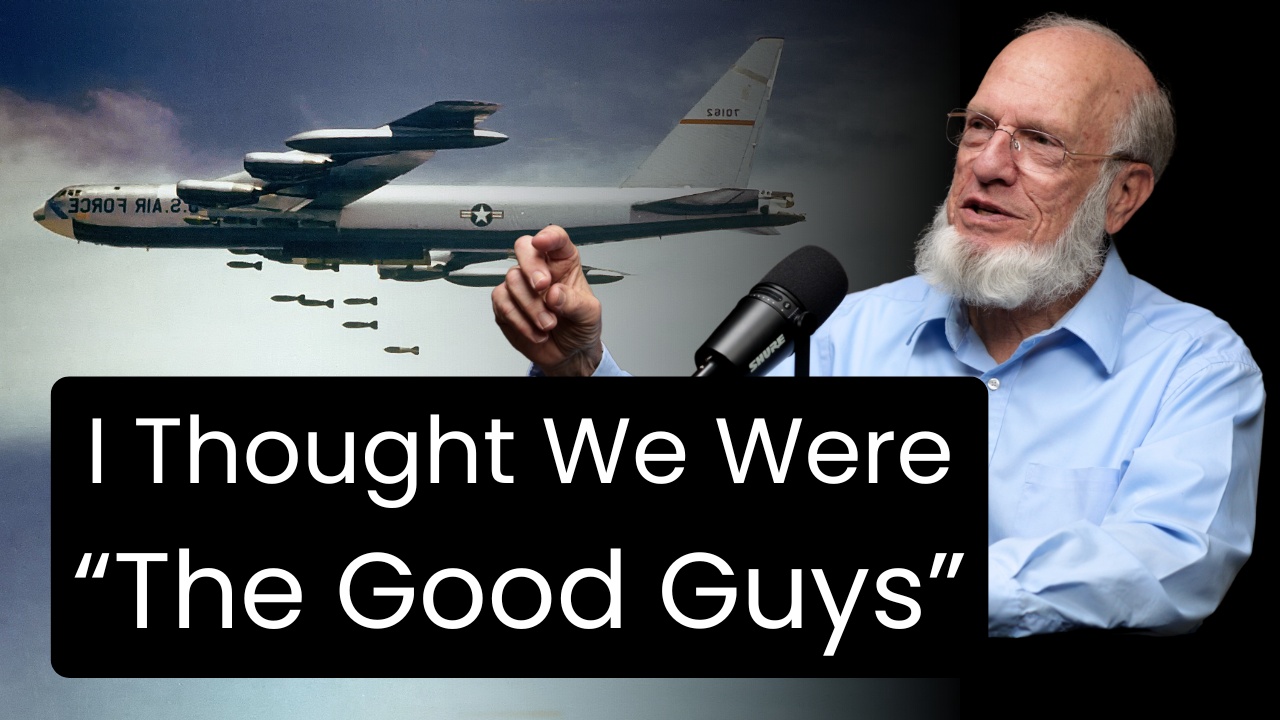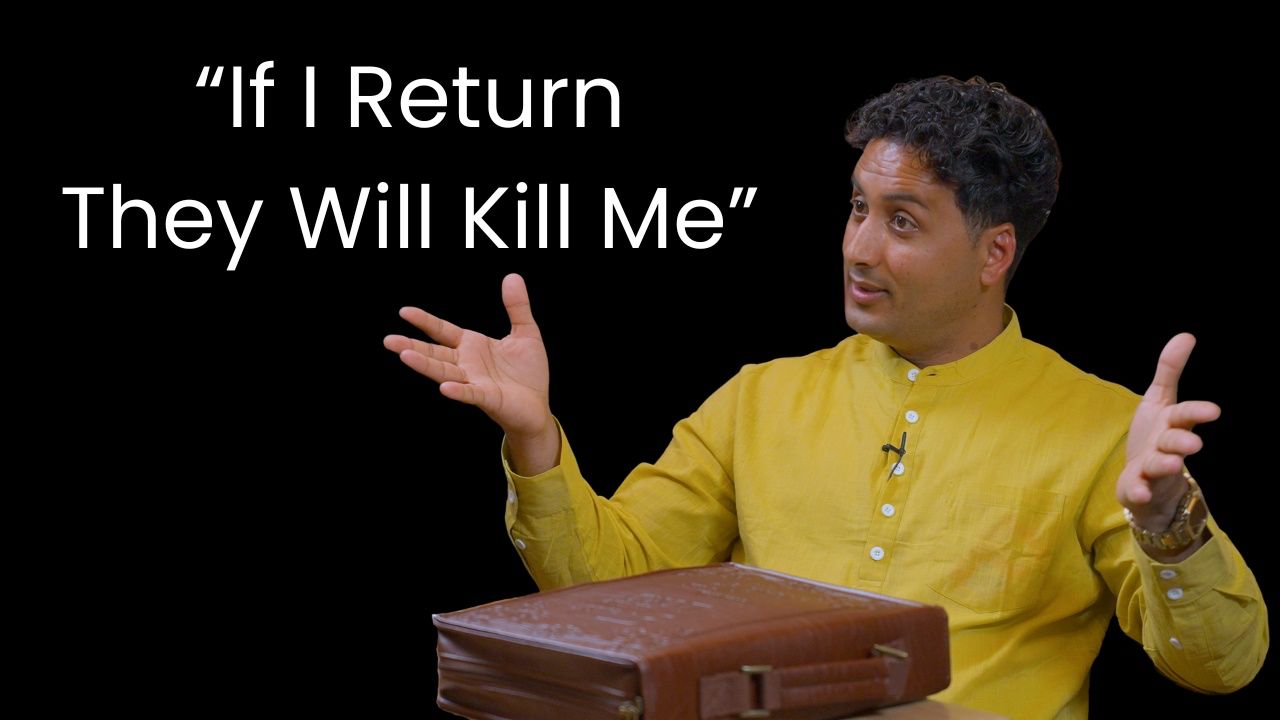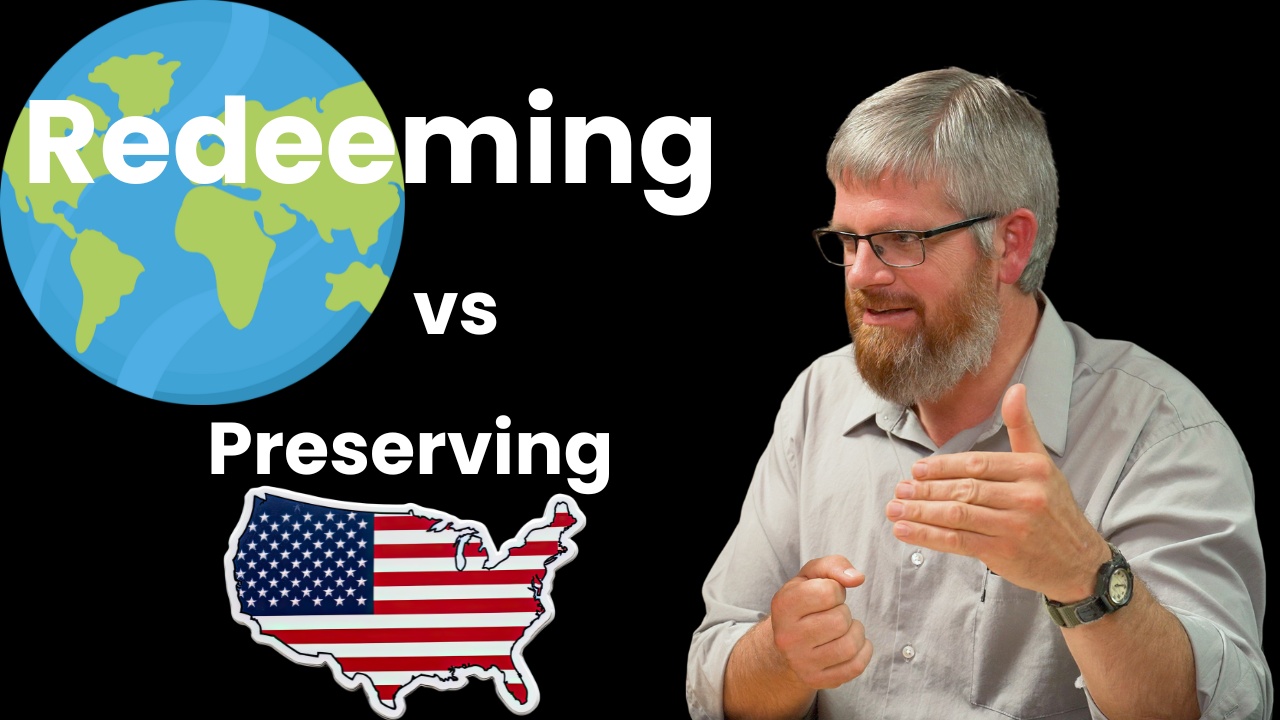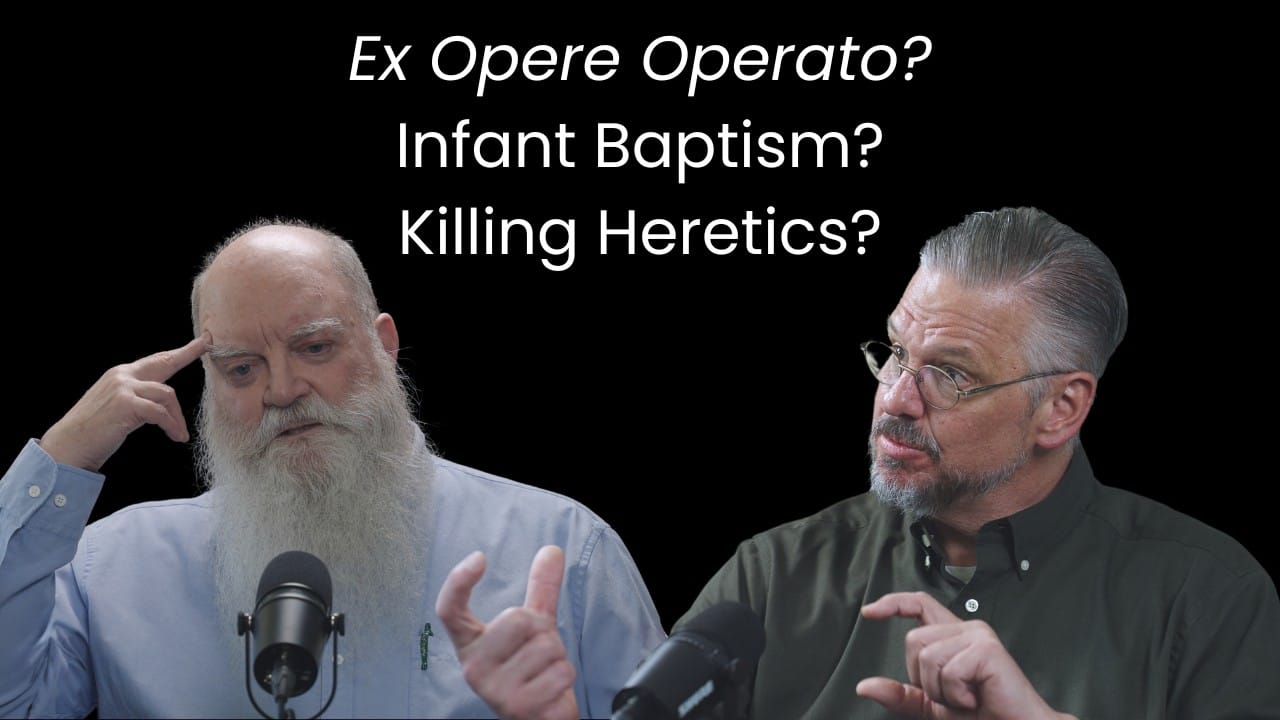A Matter of Power
Again, the devil took him to a very high mountain and showed him all the kingdoms of the world and their splendor. “All this I will give you,” he said, “if you will bow down and worship me.” Jesus said to him, “Away from me, Satan! For it is written: ‘Worship the Lord your God, and serve him only.’” Matthew 4:8-11
Have you ever wondered what went through Jesus’ mind as he stood there on that high mountain next to the Devil, looking out over the kingdoms of the world in all their glory?
I’m sure that Jesus was fully aware, even then, of the excruciating suffering and humiliation that he would soon have to face in his quest to provide humanity the way to be reconciled to God. And here was Satan, whom Jesus would later refer to as “the ruler of this world,” making a final desperate offer: all the kingdoms of the earth if Jesus would just fall down and worship him. The Devil was putting it all on the line. He would withdraw from all that was under his control in exchange for a moment of triumph over the Son of God. With the removal of Satan’s influence, the world’s inhabitants would undoubtedly have seen a new era of peace and prosperity, with Jesus in power. Since Jesus was going to suffer humiliation anyway, maybe this represented a way he could have gained the whole world while avoiding the physical cruelty of death on a cross. So why didn’t he take the deal?
Well, first of all, Jesus made clear in his rebuke of Satan that God alone is to be worshipped. In fact, the very idea of the Son of God worshipping at the feet of this rebellious and fallen angel is an absurdity and an affront to the spiritual order of the cosmos. The Creator of the universe would never bow before his own creation, regardless of what was offered in exchange. It simply wasn’t going to happen. Besides, Christ’s victory over Satan had already been assured through the divine plan of God. No deal with the Devil was needed. Jesus’ arrival heralded the coming Kingdom of God, and our Lord’s subsequent death and resurrection established that Kingdom forever. For all intents and purposes, Satan was done.
Furthermore, it was never Christ’s intention to establish his Kingdom by co-opting the political power structures of this world, no matter how appealing a solution that may have seemed from an earth-bound perspective. In other words, when it comes to human power, the Kingdom of God was never meant to be a top-down endeavor. Satan’s offer of “all this authority” (Luke 4:6) would simply not have coincided with what Jesus came to accomplish or how he planned to accomplish it.
Jesus made this point clear again and again in his life and teaching. He taught an ‘upside-down kingdom,’ where “the least shall be first,” where his followers were called to be servants and to enter the Kingdom “as little children.” He taught the predominance of love. He blessed the meek, the merciful, the poor, and the peacemakers. He confronted the abuse of religious power, and he highlighted the dangers of economic power. A week before Passover his countrymen welcomed him into Jerusalem as a political Messiah who they hoped would restore the glory of Israel, yet just a few days later, Jesus laid down his life as one despised and rejected, accused of blasphemy and abandoned by those he loved. At any point he could have mustered both earthly and heavenly armies, but instead he told Pilate: “My kingdom is not of this world. If it were, my servants would fight to prevent my arrest by the Jews. But now my kingdom is from another place.” (John 18:36)
Jesus and his apostles rejected earthly power as a means to establish this Kingdom from “another place.” They also taught that the power of God would be made manifest in human weakness and the wisdom of God would often look foolish to the world. Christ’s Kingdom was not dependent on human power structures, because it is a Kingdom born in the souls of each of his followers, one that germinates from the inside out, not in response to human governance, but in response to the Spirit’s urging. Jesus taught that the Kingdom of God is one of invitation, not coercion, with citizenship freely offered to all who repent and accept his reign.
Historically, our understanding as Anabaptists has been framed by using Jesus as our model and the New Testament church as our guide, especially as we related to the political structures around us. Because Jesus and his apostles did not use the coercive power of the Roman or Jewish authority structures to advance the cause of the Gospel, we Anabaptists have tried to follow their lead. Many religious historians point to the Anabaptist movement as one of the first groups to articulate the now widely accepted concept of “separation of church and state.” While most Anabaptists accept the God-ordained role of the secular government to punish evil and maintain order in a fallen world, we have traditionally understood this coercive function to be outside of the call of Christian discipleship. As a result, Anabaptists have suffered under the state’s wrath in addition to enjoying its protection, in much the same way as the early church.
Despite this historic understanding, there is reason to believe that the commitment to maintaining a clear distance between the work of the Kingdom and the power of the state is waning within our churches. Perhaps more than ever, Anabaptists on the left and right are increasingly seeing political engagement as an expression of their faith. Behind this perspective is often the decidedly un-Anabaptist (and un-New Testament) idea that we are called to use the political process to win the spiritual battle to either restore America as a “Christian Nation,” or to usher in a prophetic vision of peace and justice.
One of the prime reasons for this shift is the fact that we are no longer as insulated from the dominant culture as we once were. This brings our people into greater contact with all types of media, including the teaching ministries of churches and organizations who promote political involvement as a sacred responsibility. And even though these ministries teach a very different understanding of a Christian’s duty relative to the state, their message resonates within our community because we share many of the same biblical values.
Especially in election years, the sense of urgency increases. And in response, many of these Christian media voices augment both the volume and frequency of their appeals, spiritualizing the political process and pleading for Christian involvement in “the battle.” Here are just a few examples:
“The battle that we’re fighting is not just a political and cultural battle, it’s a spiritual battle. When you think about it, you know, the real enemy is not the poor, deluded souls who are advancing these evil agendas. Really, they’re just simply pawns in the hands of their malevolent master. They’re simply doing the bidding of the devil, OK?”
—Kenlyn Cureton of the Family Research Council at a Values Voter Summit.
“There is a spiritual war, and there is a political war, and they are going on in this country right now…They are going to shut our churches down…The enemy wants to muzzle you. He wants to shut your mouth. We’re not facing Goliath. This enemy in not 10 feet tall, this enemy is weak. How we defeat them is how we get involved in our communities around America. Now is the time to put on the whole armor of God. “
—General Michael Flynn at a ReAwaken America rally.
“The Bible calls upon the rulers to create a just society. In a democracy, we are the rulers…. We have inherited a system that works efficiently to produce tremendous wealth, but fails to distribute that wealth equitably. It neglects the poor and it corrupts the rich…There are remedies that will make the system work better in the interests of all the people, but it takes active political involvement to bring them about. ”
—Quaker Author and Teacher David Chandler
At their best, these appeals are motivated by a sincere desire to promote godly values within society. But it must also be recognized that behind a good number of these pleas is a commitment to a partisan political agenda that extends well beyond the values framed by Scripture. And at worst, some of these appeals are motivated by a desire to wield the type of power that Jesus clearly confronted during his time on earth. Furthermore, these various motives are often hard to differentiate, as they become ingredients in a veritable soup of civil-religious fervor.
Regardless of motives, the Christianization of political power is fraught with inherent dangers that we Anabaptists should consider:
The danger of getting distracted from our prime calling – Jesus has commissioned us to make disciples of all nations, baptizing them and teaching them to obey everything he commanded (Matthew 28:19-20). We are to validate this message with lives full of love for God and others, (Matthew 22:36-40) and we are to seek first the Kingdom of God above all else (Matthew 6:33).
Yet, when the lines between faith and politics become blurred, and we begin to invest increasing amounts of time, energy, resources and emotion into seeking political solutions for what are often spiritual problems, the advance of the Gospel is shortchanged. Evangelical author Michael Spencer concurred in his article The Coming Evangelical Collapse:
The evangelical investment in moral, social, and political issues has depleted our resources and exposed our weaknesses. Being against gay marriage and being rhetorically pro-life will not make up for the fact that massive majorities of evangelicals can’t articulate the Gospel with any coherence. We fell for the trap of believing in a cause more than a faith.
The danger of becoming a house divided – Jesus observed that a kingdom divided against itself cannot stand (Matthew 12:25). So did Abraham Lincoln for that matter. Jesus, of course, was speaking of the spiritual realms, and Lincoln of earthly societies, but both recognized the fact that division works against the strength of a movement, and both appealed for allegiance. Jesus even asserted that unity of spirit would be one of the most convincing proofs to a skeptical world of his presence in the lives of his followers (John 17:21).
Yet as some of us Anabaptists have placed more stock in politics, those new loyalties have divided us like they have divided the rest of society. You see, political activists know that the way to motivate people to involvement is to moralize every issue and vilify the opposition, not just their policies, but their intelligence, their integrity, and even their faith. And when we in the household of faith have bought into these partisan character assaults, we have essentially ignored scripture’s injunction to “Be completely humble and gentle; be patient, bearing with one another in love. Make every effort to keep the unity of the Spirit through the bond of peace” (Ephesians 4:3-2).
The danger of vesting in earthly power – When we are enticed to put our trust in the temporal power of governments and political parties, we should remember that in the end Jesus will reign supreme. “Then the end will come, when he hands over the kingdom to God the Father after he has destroyed all dominion, authority and power. For he must reign until he has put all his enemies under his feet” (I Corinthians 15:24-25). And while Scripture recognizes the legitimacy of governmental power for punishing evil and rewarding good (Romans 13), it also points to the potential for earthly powers to “make war on the saints” (Revelation 13). So, while governmental power can help provide some temporary order and stability within a society, ultimately it is the spiritual condition of that society that will determine its character, and it is the spiritual power of Christ that provides our only hope for true and everlasting reform. Just days after the 2008 presidential election, columnist Cal Thomas shared these thoughts with demoralized conservative Christians:
Scripture teaches that God’s power (if that is what conservative evangelicals want and not their puny attempts at grabbing earthly power) is made perfect in weakness. He speaks of the tiny mustard seed, the seemingly worthless widow’s mite, of taking the last place at the table and the humbling of one’s self, the washing of feet and similar acts and attitudes; the still, small voice. How did conservative evangelicals miss this and instead settle for a lesser power, which in reality is no power at all? When did they settle for an inferior “kingdom”?
Evangelicals are at a junction. They can take the path that will lead them to more futility and ineffective attempts to reform culture through government, or they can embrace the far more powerful methods outlined by the One they claim to follow. By following His example, they will decrease, but He will increase. They will get no credit, but they will see results. If conservative evangelicals choose obscurity and seek to glorify God, they will get much of what they hope for, but can never achieve, in and through politics.
Thomas’s warning to conservative Christians has obviously not taken root in the years since the 2008 election. If anything, many Christians are more viscerally entrenched in politics and coercive solutions then they have been in modern memory—to the detriment of their witness to the Prince of Peace.
The danger of being formed by politics – In Romans 12, Paul encourages us not to be conformed to the patterns of this world, but to be transformed by the renewing of our minds. In I Corinthians 2, Paul expands upon this idea, teaching that we Christians speak “not the wisdom of this age or of the rulers of this age, who are coming to nothing,” but rather, through the Spirit, we have been given access to “the mind of Christ.”
In today’s context, the “rulers of this age” speak in political ideologies. We Anabaptists must keep in mind that while many of these ideologies are influenced by “Judeo-Christian” thinking, they still basically represent the “wisdom of this age” and not the “mind of Christ.” At their core, these ideological packages are grounded upon a humanistic worldview, and full of compromises needed to ensure political success.
As we become more involved in partisan politics and political outcomes, research shows that our thinking is likely to be altered in the process. In fact, in a major study of religion in America, Robert Putnam and David Campbell conclude that “most people change their religion to fit their politics. They don’t change their politics to fit their religion.” The danger here is as we Anabaptists become political, we are also more likely to conform our minds to the ideological patterns of this world.
The danger of alienating those to whom we are called to minister – The Kingdom of God transcends all boundaries, and we are given a mandate from King Jesus to make disciples of every nation, baptizing them and teaching them everything he commanded. (Matthew 28:18-20). To accomplish this we need to build meaningful relationships with others across the spectrum, perhaps even “sinners and tax collectors.” That is where Christian political involvement is hurting the cause of evangelism.
As we have aligned with partisan politics in an attempt to promote Christian values within society, an increasing number of people have ended up feeling hated and judged as a result. And when one listens to the passionate and sometimes vitriolic tone of some of the rhetoric surrounding hot-button political issues, it is not surprising that a growing number of people feel personally opposed by the followers of Jesus. In the end, the message of Christ suffers as Christians encounter closed relational doors.
Additionally, there is growing evidence that the culture wars are producing spiritual collateral damage. According Putnam and Campbell, an unprecedented 35% – 40% of younger Americans claim to have no religious affiliation at all! Digging for the cause of this disengagement, the study found that young adults cited “the politicization of religion” as the main reason why they have become cynical about faith. Ironically, by using the political process to create for their children a society that reflects their religious values, Christians run the risk of spiritually alienating the very children they had hoped to bless.
So how do we as Anabaptists live out our calling to be salt and light in a lost and violent world? Must we avoid politics all together in our quest to better society? Shouldn’t our voice as citizens in a country with a participatory government count?
As people who know the Creator, there is no question we must stand fully for godly morality, the sanctity of life, and for human dignity. However, rather than yoking ourselves to the power structures of earthly society, let us follow our Savior’s lead. He changed the course of history not by co-opting carnal power, but by teaching his followers to live lives effectively for the Kingdom of God, so that those around them may see their good deeds and glorify their Father in Heaven. Above all, we must show the love of Christ to all within our reach, so they too may know the Savior: “For in him we live and move and have our being.” We vote for a better country, a better world, and a better future with our lives.
Tags:








Leave a Reply